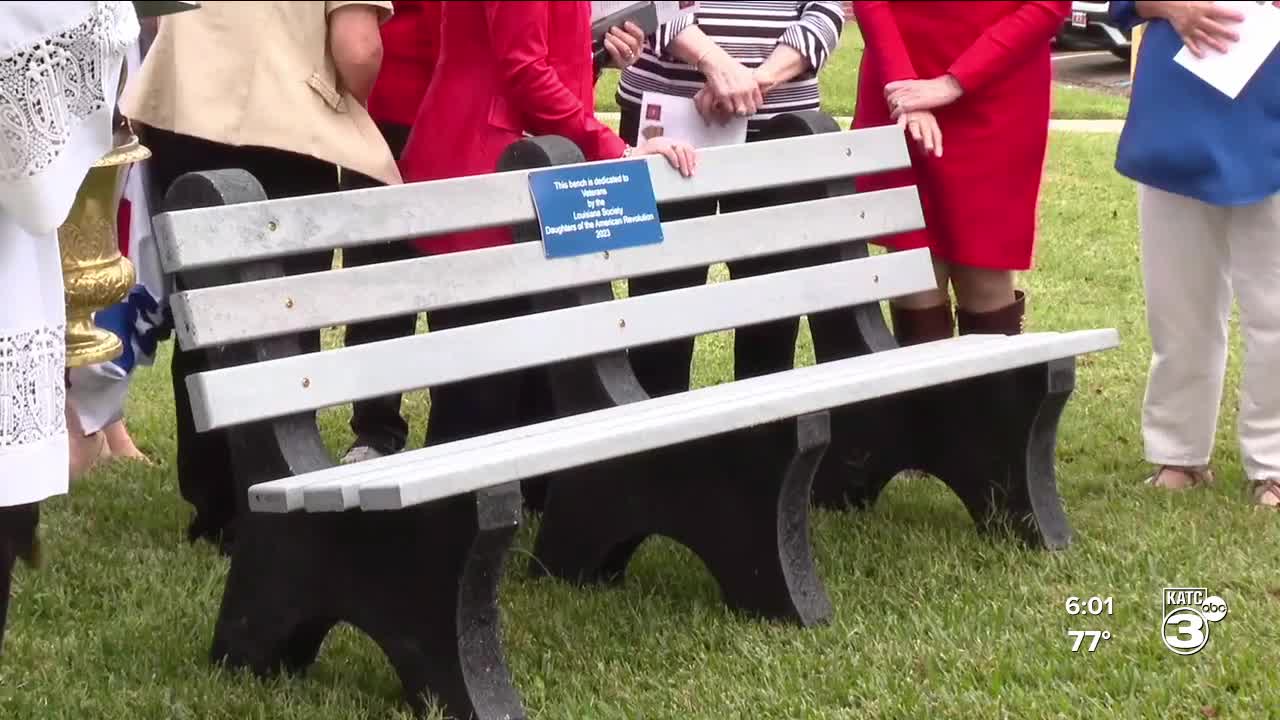ST. MARTIN PARISH — Filled with a rich history, St. Martinville has no shortage of historical landmarks. But thanks to a collaboration between the Daughters of the American Revolution (DAR) Galvez Chapter and Saint Martin de Tours Catholic Church, the city can add a new memorial bench dedicated to veterans to its list.
Honoring both past and present service members and crafted from over three and a half tons of recycled bottle caps, the bench stands as a sustainable tribute to those who have served in the military.
The bench, which is one of 17 placed across Louisiana as part of a larger project by the Daughters of the American Revolution (DAR), was placed strategically next to a Revolutionary War memorial at Saint Martin de Tours Catholic Church.
Rae Gremillion, Regent of the DAR’s Galvez Chapter, explained the importance of the memorial and its location. "Here are buried several patriots from Louisiana who fought in the Revolutionary War," she said. "It’s sustainable, it’s here, and it’s honoring our veterans on a wonderful day of Veterans Day because without our veterans, we would not be America."
The bench is part of the organization’s broader initiative, the "Service to America" project, which has seen similar memorials installed at veterans' homes and hospitals throughout the state, "We raised or collected throughout the state of Louisiana over three and a half tons of bottle caps," Gremillion shared. "We’ve placed them throughout Louisiana recognizing the service of our veterans."
Father Jason Vidrine, pastor of Saint Martin de Tours Catholic Church, also reflected on the deeper meaning of the bench and the legacy it represents, "Most of them are our ancestors who fought for our freedom at the beginning of our nation under Galvez, the Attakapa regime," he said. "So, it’s great that they can provide this bench here to have people really stop and pause and reflect on that thing."
The bench is not only a tribute to Revolutionary War soldiers but to all veterans, Gremillion explained, as they share a common goal of fighting for freedom. "You had your people from France, you had your Spanish, so it was all people who were coming here and fought for one thing… freedom, and that’s something we’re still celebrating today.”




